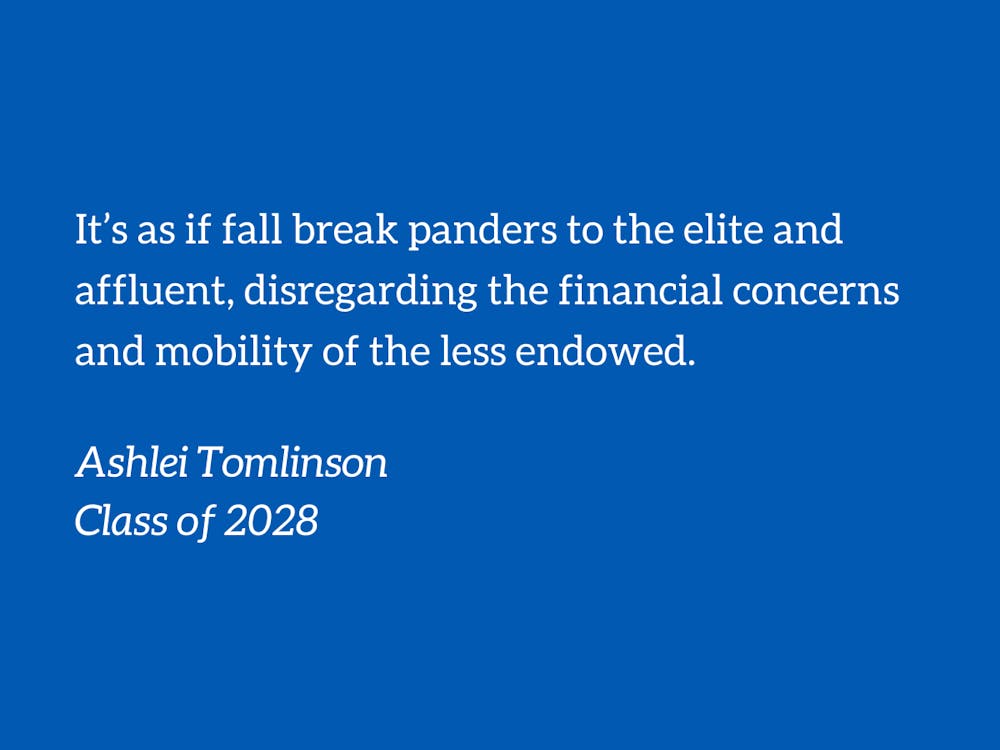By now, everyone has come back from Fall Break. Some, however, didn’t even have to leave their dorms to be back for the start of classes on Wednesday. And so together, they watch those who flew or drove hours to leave campus on Friday return after another hours-long trip, fresh-faced and revived from the first of the midterm season. To them, it would seem that traveling so far and for so long for a three-day sojourn was worth it. That spending ample money on an, in some cases, $800 plane ticket was a mere sacrifice for the respite of returning home. Unfortunately, not everyone has that luxury.
Fall Break, a holiday usually spanning 3-4 days, figures more as an extended weekend. It’s certainly not a holiday meant for travel or, at least, not one conducive to travel for those who dwell in the lower tax brackets.
So how do those who cannot afford to fly or drive back and forth from campus frequently rationalize splurging on a ticket home for fall break, given that Thanksgiving and winter break are not too far behind? That’s it, they don’t. Instead, they are sequestered on campus in a desert of wealth. This, however, is not the financial reprieve it would appear to be. For those staying on campus have to spend their — likely already scarce — food points to eat, an act that, though not overtly inimical, actively disadvantages students who will now have fewer food points than those who left campus and are arguably in a better financial position to spend. Coming back to campus then, not only are those who left campus arguably more sated than those who stayed on, but they are also better situated to enjoy their time back on campus, thanks to their spare food points.
Ironic, isn’t it? Whichever way one might choose to enjoy fall break, they are left with a cost. It’s as if fall break panders to the elite and affluent, disregarding the financial concerns and mobility of the less endowed. Perhaps that’s why, when compared to their public counterparts, private universities disproportionately celebrate fall break.
Private, unlike public, universities have the financial autonomy to leverage their schedules, allowing for more holidays, like fall break, in the semester. Public schools, however, must abide by state regulations lest they risk losing funding for the next academic school year. It is beyond unfortunate that some public students who perhaps most need a break cannot afford one, especially considering that a higher proportion of public — not private — students tend to work while attending classes.
Fall break is, therefore, inclusive in that it excludes all unrich. That is, whether the unrich attend private or public school, Fall Break will threaten their financial and mental well-being. Those who can celebrate Fall Break to its fullest — namely, driving and flying hours to and from campus — may want to consider then whether it’s fair that one class of students gets to decompress while another does not. They may want to consider whether what they enjoy and, in effect, is elitist.
Ashlei Tomlinson is a Trinity first-year.
Get The Chronicle straight to your inbox
Sign up for our weekly newsletter. Cancel at any time.

